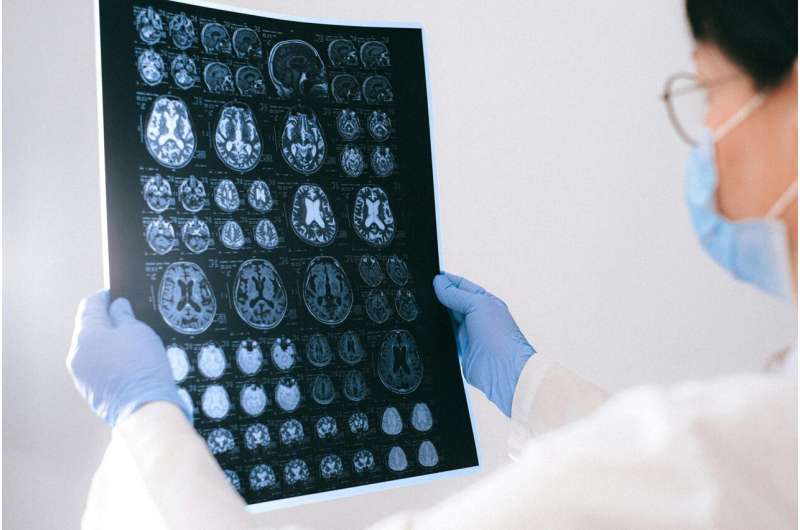
A team of neuroscientists from Universidad Politécnica de Madrid and Queen Sofia Foundation Alzheimer Center, both in Spain, has found that so-called superagers maintain memory as they grow older because they do not experience a decline in the integrity of their white brain matter.
In their study, published in The Journal of Neuroscience, the group conducted multiple tests with 100 octogenarian volunteers over a 10-year span.
Prior research and anecdotal evidence suggest that as people grow older, they tend to lose neurological function—thinking skills decline, as does memory retention and retrieval. But people known as superagers remain cognitively sharp and their memory skills do not deteriorate.
For this new study, the team in Spain evaluated the brains of these people and compared them with non-superagers to find out what was behind such differences.
The researchers recruited 64 superager volunteers and 55 non-superagers who periodically received brain scans and blood draws, took memory tests and completed multiple types of questionnaires over 10-year periods. The tests were designed to learn more about their lifestyles, behavior and how well their brains were holding up as they grew older.
The researchers found differences in the integrity of white brain matter. For superagers, there was little to no loss. More specifically, they found little loss in the mass of white brain matter in the entorhinal cortex and hippocampus, two parts of the brain that are heavily involved in memory processing and retention. They also found few signs of Alzheimer’s disease.
Unfortunately, the research team found no evidence that could explain why some people are superagers, though they did note some minor differences in lifestyle choices—people in better health overall tended to have better mental health, as well.
The team also noted that superagers did not smoke or drink less, eat better, or exercise or sleep more. They also were no smarter or less intelligent than average and did not do any better or worse in their professional life prior to the onset of old age.
More information:
Marta Garo-Pascual et al, Superagers resist typical age-related white matter structural changes, The Journal of Neuroscience (2024). DOI: 10.1523/JNEUROSCI.2059-23.2024
© 2024 Science X Network
Citation:
Neuroscientists find integrity of white brain matter in superagers does not deteriorate, explains sharp memory (2024, April 30)
neuroscientists-white-brain-superagers-deteriorate.html
.
. The content is provided for information purposes only.
